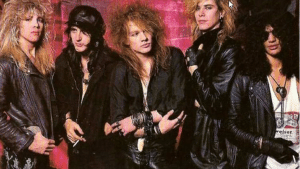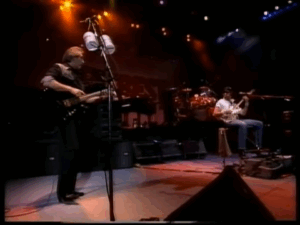Why ZZ Top Fired Chris Robinson

via Chris Robinson / Youtube
In the early 1990s, Chris Robinson, the outspoken lead singer of The Black Crowes, found himself in the midst of a tour controversy that ultimately led to the band’s dismissal from ZZ Top’s tour. Known for never shying away from expressing his opinions, Robinson’s candid nature played a role in the unfolding events.
The opportunity arose when The Black Crowes were invited to join ZZ Top on tour to promote their first album, Recycler. The excitement and anticipation were palpable as the two bands embarked on what seemed like a promising musical journey together.
However, the tour took an unexpected turn when The Black Crowes suddenly found themselves ousted from the lineup.
Initially, there was widespread speculation that ZZ Top had made the decision to part ways with The Black Crowes. Surprisingly, Robinson himself remained uninformed about the circumstances leading to their dismissal.
The Black Crowes didn’t like corporate sponsorship
The original intention for The Black Crowes was to accompany Billy Gibbons and his bearded crew on their January 1991 tour, extending their support until May. However, midway through the tour, the band was unexpectedly ousted, with the explanation being that their departure was more related to business concerns than musical considerations.
The originally planned triumphant three-night homecoming celebration for The Black Crowes was abruptly curtailed, concluding after only two nights.
Both Chris and Rich Robinson pointed fingers at ZZ Top’s manager, Bill Ham, attributing the band’s removal to his apparent displeasure. This dissatisfaction stemmed from remarks Chris had made about ZZ Top’s use of corporate sponsors during their tour.
Despite prior warnings against making disparaging comments, Chris specifically was cautioned not to criticize Miller Brewing and Lone Wolf Productions. The fallout from these remarks contributed to the unforeseen and premature conclusion of The Black Crowes’ involvement in the ZZ Top tour.
https://twitter.com/SukursalRock/status/1374900156202639366
“They weren’t allowing us to be the Black Crowes”
In the aftermath of their abrupt removal from the tour, The Black Crowes took to the media to address the incident, shedding light on Chris Robinson’s perspective.
Robinson, expressing a sense of frustration and constraint, suggested that the band felt continually censored throughout their time on the tour. In a candid statement regarding the incident, he conveyed the sentiment that external forces were impinging upon their artistic expression:
“They weren’t allowing us to be the Black Crowes. They were trying to censor what I was trying to say… I don’t need a big corporation telling me about the only thing in my life I have control over, really, which is my music.”
Robinson’s comments underscored the clash between artistic autonomy and corporate influence, emphasizing the band’s commitment to maintaining their unique identity and creative freedom.
Their stance softened after playing again their classics with stand-in drummers
Contrary to initial perceptions implicating The Black Crowes in their tour dismissal, ZZ Top’s statement clarified that the decision was internally made within the ZZ Top organization, disassociating it from any external corporate influence.
The statement sought to dispel notions of pressure from entities like Miller Brewing, asserting that the decision was driven by considerations of common decency, courtesy, and a moral and ethical obligation. The representatives elaborated:
“This decision was arrived at entirely within this organization and not as has been suggested as a result of corporate pressure. Miller Brewing has been a partner in this tour since its inception and has been very accommodating to ZZ Top and has asked absolutely nothing of the opening acts which have appeared. It is out of a sense of common decency and courtesy coupled with a moral and ethical obligation that this action has been taken.”
In essence, ZZ Top’s response suggested that the entire episode stemmed from a misunderstanding, underscoring the importance of moral and ethical values in their decision-making process.












